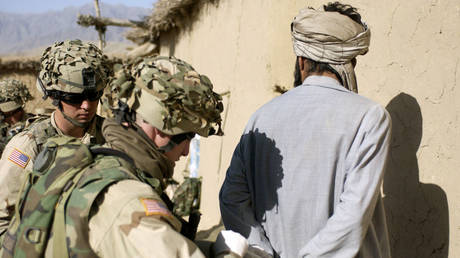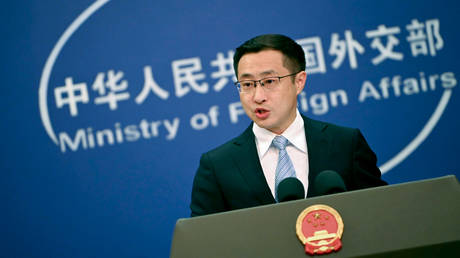
The US blacklisting of International Criminal Court prosecutor Fatou Bensouda amounts to an “unacceptable attempt to interfere with the rule of law,” the ICC said after US Secretary of State Mike Pompeo announced the sanctions.
Bensouda, a Gambian attorney who was attempting to investigate alleged US war crimes in Afghanistan, was sanctioned on Wednesday. ICC’s head of Jurisdiction, Complementary, and Cooperation Division Phakiso Mochochoko was also blacklisted for “having materially assisted” the prosecutor, Pompeo told reporters.
“These attacks constitute an escalation and an unacceptable attempt to interfere with the rule of law and the Court’s judicial proceedings,” ICC spokesperson Fadi El Abdallah said in a statement responding to Pompeo’s announcement, adding that “an attack on the ICC also represents an attack against the interests of victims of atrocity crimes, for many of whom the Court represents the last hope for justice.”
Abdallah said the court remained “unwavering” in its commitment to the mandate bestowed on it by the Rome Statute and the states that signed it.
The Statute went into effect in 2002 and 123 states have become parties to it as of 2019. While the US is notably not one of them, Afghanistan is.
In June, the Trump administration laid the groundwork for imposing economic and personal sanctions against the ICC and any of its personnel who dared investigate the US or any of its allies, including Israel, and called the court’s inquiries into violations of Palestinian human rights “politically motivated.”
On Wednesday, Pompeo described the ICC as “a thoroughly broken and corrupted institution” and said the US “will not tolerate its illegitimate attempts to subject Americans to its jurisdiction.”
Having backed the ad-hoc international tribunals for Yugoslavia and Rwanda in the 1990s, the US has opposed the ICC from the very beginning, and refused to ratify the Rome Statute. The George W. Bush administration even passed the American Servicemembers Protection Act in 2002, which includes the so-called “Hague invasion clause” authorizing the use of force to liberate any American or allied national held by the ICC.
The law also enables the US to withdraw military assistance from countries that have ratified the Rome Statute, and restricts Washington’s participation in UN peacekeeping operations unless US troops are given blanket immunity.
Like this story? Share it with a friend!




